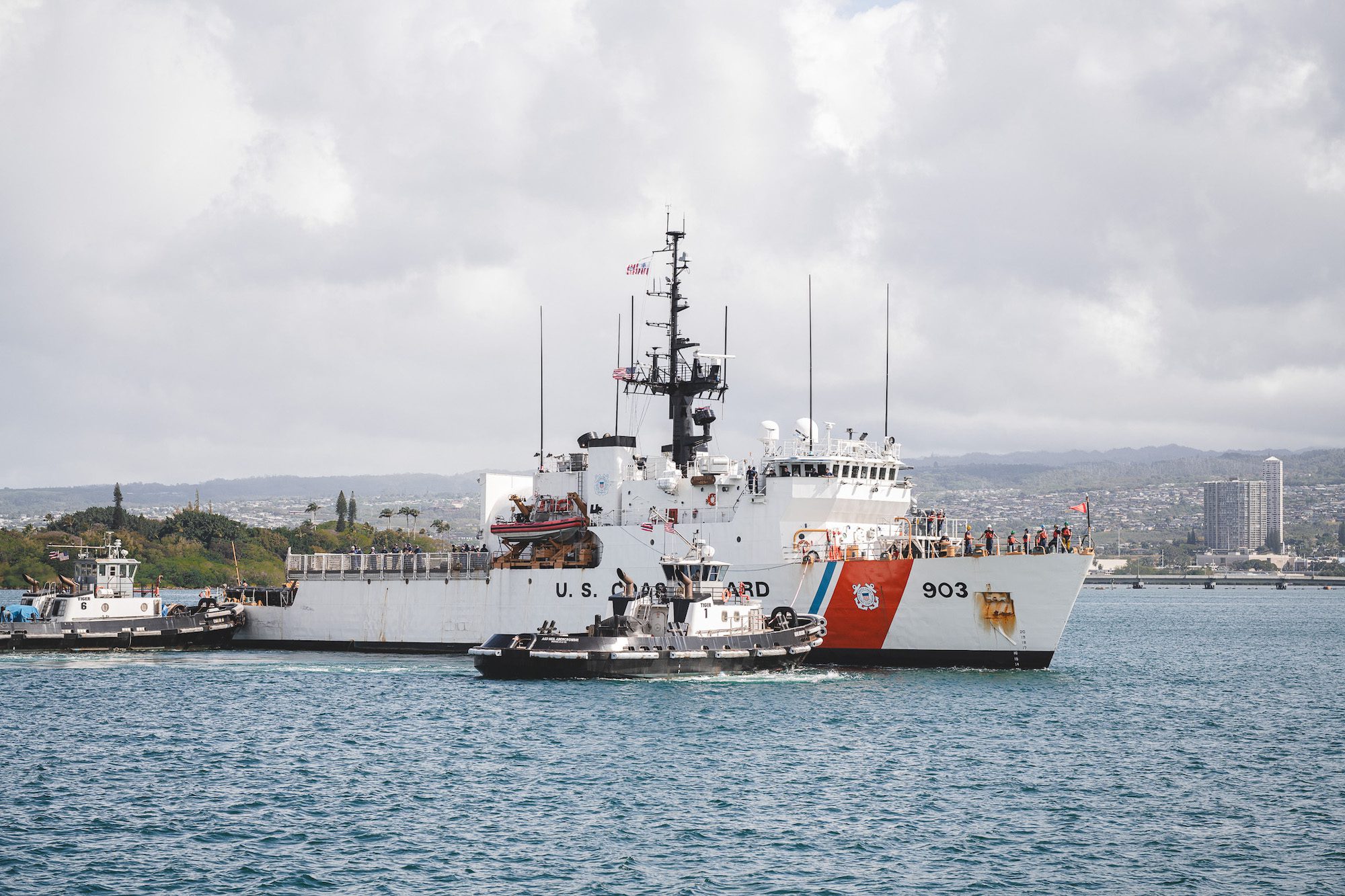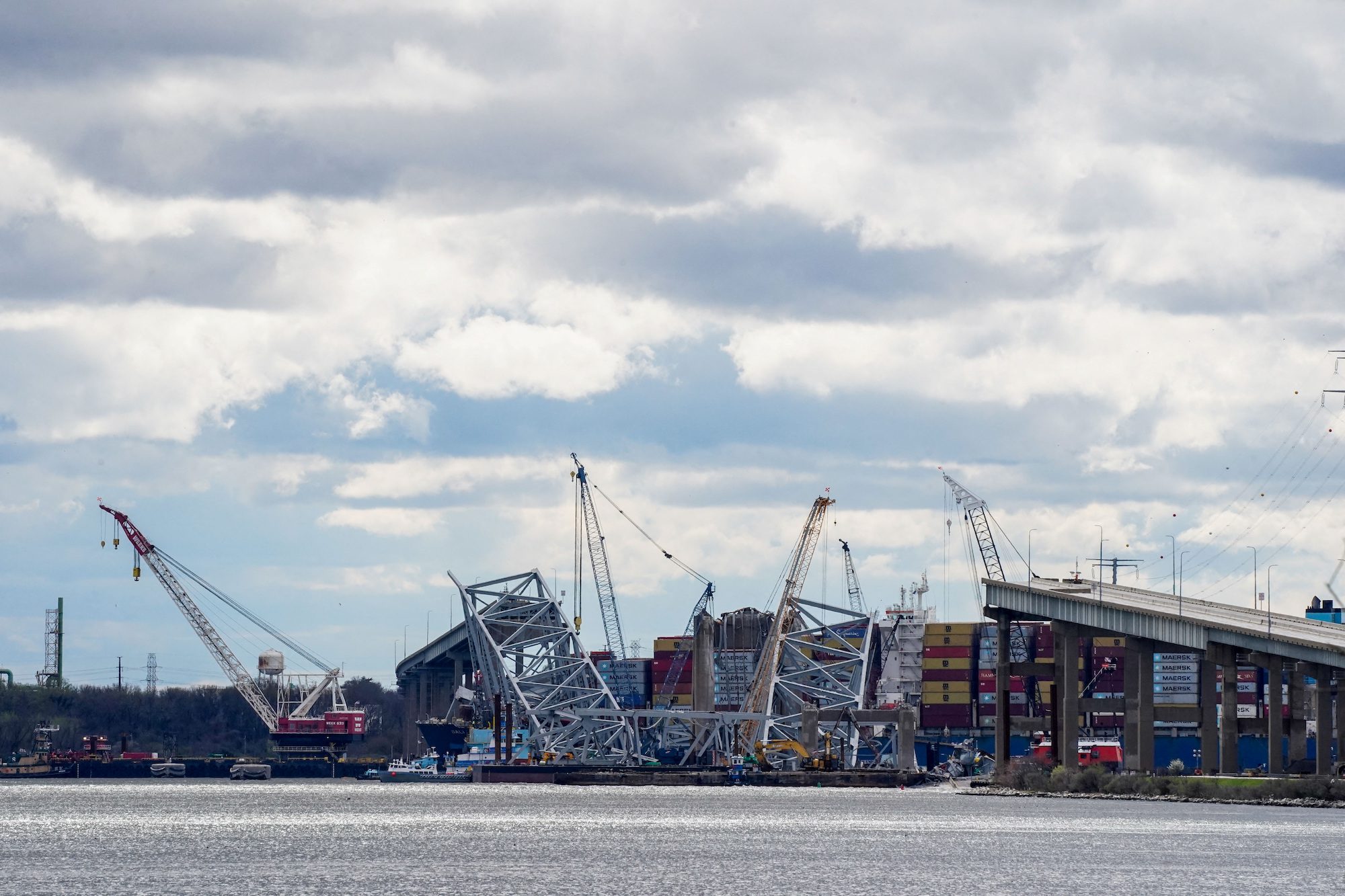Jones Act tanker file photo.
Editor’s Note: This article was written by the American maritime Partnership in response to a recent discussion on the Jones Act at The Heritage Foundation, a conservative think tank, in which Senator John McCain vowed the eventual repeal of the 90 year old law. See: Senator John McCain Vows Repeal of Jones Act
WASHINGTON, DC – The American domestic maritime industry, which supports almost 500,000 jobs that pump nearly $100 billion into the nation’s economy every year, and 40,000 vessels that operate in U.S. waters, 24-hours a day, 7-days a week, today released the following FACT CHECK and statement in response to misinformation about the industry’s critical role in the country’s national, homeland and economic security. The Jones Act Truth Squad is provided by the American Maritime Partnership, the voice of the U.S. domestic maritime industry.
“The Jones Act enjoys rock solid support from lawmakers in Congress and the Administration because leaders from both sides of the aisle understand this law is vital to America’s national, homeland and economic security,” said Tom Allegretti, Chairman of AMP. “It is troubling that U.S. refiners pushing for changes to the Jones Act as part of the crude oil export debate are putting their vested financial interests over the national and homeland security of our nation. The two issues are not connected. American maritime is flourishing and stronger than ever. In fact, the most modern vessels in the world are being built in record numbers in U.S. shipyards all around the country, the industry is responding to the changing energy market caused by the shale oil revolution, and the U.S. maritime industry is growing as a result. It is an exciting time to be a part of this dynamic industry, and the nation is benefiting from the service we provide.”
JONES ACT FACT CHECK
CHARGE: The Jones Act is impeding crude oil exports and must be addressed along with any action on the U.S. crude oil export ban.
FACT: The crude oil export debate and the Jones Act are not connected in any way, according to Senator Mary Landrieu (D-La.). In order to protect their record profits and vested financial interests, U.S. refiners are willing to sacrifice America’s national security for less than a penny per gallon of the price of gasoline. In fact, refineries are experiencing record profits by refining cheap domestic crude and selling the gasoline, jet, diesel, and other refined products overseas at higher margins.
- According to NASDAQ: “Refiners are jumping on the opportunity to increase profits…” –NASDAQ
- According to the Wall Street Journal: “Downstream operations, which refine oil into gasoline and other products, become more profitable when the oil they use is cheaper. Prices of refined products such as gasoline typically don’t fall as quickly as those for crude. ‘The combination of a glut of U.S. oil and natural gas and a ban on exporting most oil already gave U.S. refineries lower costs,’ says Bernstein Research analyst Oswald Clint.” –The Wall Street Journal
- According to OilPrice.com: “This surge in supply also has lowered costs for refinery operators, simply because domestic crude is less expensive than imported oil.” –OilPrice.com
CHARGE: The Jones Act does not play a role in America’s national and homeland security.
FACT: The Jones Act fleet of American-owned, American-built, and American-crewed vessels ensures that the ships navigating our coastal and inland waterways abide by U.S. laws and operate under the oversight of the U.S. government.
- According to the Lexington Institute: “Without the Jones Act, DHS would be confronted by the difficult and very costly task of monitoring, regulating, and overseeing all foreign-controlled, foreign-crewed vessels in internal U.S. waters.: –The Lexington Institute
- According to Reps. Steve Scalise (R-LA) and Duncan Hunter (R-CA): “The security importance of this law is equally, if not more important than the economic benefits. Without the Jones Act, vessels and crews from foreign nations could move freely on U.S. waters, creating a more porous border, increasing possible security threats and introducing vessels and mariners who do not adhere to U.S. standards into the bloodstream of our nation.” –The Washington Times
- U.S Navy is a strong supporter of the Jones Act because it is critical to national security: “As a maritime nation, the United States depends not only on a strong Navy, Marine Corps and Coast Guard, it also requires a strong commercial maritime industry. The Jones Act must be maintained so that the U.S. citizen mariners can continue to provide the economic and military support that is critical to our national interests.” –The Maritime Executive
CHARGE: Shipping by Jones Act vessels is three times more expensive than foreign vessels.
FACT: Foreign-flag ships are not subject to U.S. taxation, U.S. immigration, U.S. safety and other U.S. laws. Contrasting U.S.-flag Jones Act vessels and foreign-flag vessels is an “apples to oranges” comparison. Foreign-flag vessels operating in the domestic trades would be subject to the same laws as U.S.-flag vessels, drastically affecting any perceived cost savings.
- Government Accountability Office (GAO) recently debunked this myth: “Foreign carriers operating in the U.S. coastwise trade could be required to comply with other U.S. laws and regulations which could increase foreign carriers’ costs and may affect the rates they could charge.” –GAO (0pens in PDF)
CHARGE: The Jones Act increases energy prices.
FACT: According to the Department of Energy’s Energy Information Administration (EIA), taxes and refining make up more than twenty-one percent of the price of a gallon of gas, while in markets where ocean-going transportation plays a key role in distribution, the average transport costs are less than one penny per gallon of gasoline.
- According to BLOOMBERG: “Outside of pipelines, [maritime] is the best way to transport oil if you’re a coastal refiner.” –Bloomberg
- According to the Oil Price Information Service (OPIS): “Apart from the national security argument, some tanker analysts said that the high demand for Jones Act tankers is also supported by better economics and practicality when compared with pipelines.” –cnss.com
CHARGE: There are not currently enough U.S-flag vessels to meet the demands of the nation’s energy boom.
FACT: Last year, the construction of inland tank barges reached an all-time high with 336 new vessels delivered, totaling more than 8.2 million barrels of capacity, and some 26 large tankers and articulated-tank barges, including options, with another combined 7.6 million barrels of capacity, are currently under contract or construction in U.S. shipyards.
- According to BLOOMBERG: “U.S. shipyards are the busiest in almost two decades as surging domestic energy production increases cargoes for the merchant fleet, according to the Department of Transportation.” –Bloomberg
- According to MarineLog.com – “The state of the U.S. commercial shipyard industry is the strongest it has been in decades. The industry includes thousands of businesses supporting vessel construction, is a vibrant manufacturing sector employing hundreds of thousands of Americans in all 50 states.” –MarineLog
Via American Maritime Partnership
Unlock Exclusive Insights Today!
Join the gCaptain Club for curated content, insider opinions, and vibrant community discussions.

 Join The Club
Join The Club













